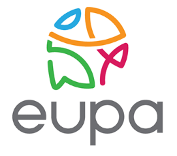The Current Situation
An increasing number of asylum seekers and migrants are facing pushbacks in the Mediterranean, in the last month a record number of individuals were rescued and returned to Libya, with over 1,000 people across 5 separate operations in one day, being handed over to the Libyan authorities. It has been established for some time that migrants and asylum seekers who are disembarked in Libya often end up in appalling conditions where they face abuse and extortion. Individuals have gone missing and many are unaccounted for, it is likely that some have been channeled into human trafficking networks. According to a Libyan activist working with the Belaady organisation for Human Rights, sexual violence and exploitation are endemic across multiple detention centres in Libya. Yet, arbitrary pushbacks and detention continue to be rife, the Libyan coast guard has in fact returned more than 13,000 people this year which already surpasses the number of individuals intercepted, rescued and disembarked in all of 2020. There are ongoing tensions during disembarkment, last week 86 migrants were rescued by the NGO ship Nadir, one of the individuals was unconscious and was another pregnant, the NGO refused to hand them over to the Libyan coastguard and they were later transferred to an Italian patrol vessel which took them to Italy.
The Libyan Coastguard has received ongoing financial and technical support from external bodies, from March to June alone they received 5.8 million Euros from the EU trust fund channeled through Italian authorities. This week, the Libyan coastguard was caught on camera by a sea rescue group, Sea-Watch, shooting at a crowded boat carrying migrants within the Maltese SAR zone, they came dangerously close to crashing into the boat several times. This obvious act of intimidation and aggression has been condemned within the international community of NGOs.
Since the beginning of 2021, 866 people have died or gone missing crossing the Mediterranean sea, which is an average of almost 5 people per day (as of 1 July). Loss of life while attempting this crossing has increased by 190% in 2021 compared to the same period in 2020. Yet, the IOM’s ability to monitor deaths at sea in the Mediterranean are reduced due to the restrictions imposed on Search and Rescue vessels- so it is likely that the number of deaths is much higher than estimated.
Increased border control
While NGOs and activist groups have continued to advocate for the implementation of safe and legal routes as regularized measures and pathways that can ensure a safe passage for people found to be in need of international protection, the European Union seems to be focusing on strengthening securitization and surveillance. The EU is funding and implementing digital barriers to bolster AI-surveillance, including pilot schemes with AI-powered lie detectors and virtual border-guard interview bots, that fundamentally de-humanise the migration process. A newly constructed steel wall acts as a blockade between Turkey and Greece, and the Greek border police are currently testing the use of a ‘sound cannon’ that bursts deafening long range sounds over the border. These measures reflect a pendulum shift to the right, as funding is channeled into restrictive security measures that criminalise those attempting the crossings. There are proposals to implement a 9pm curfew at the camps across the Greek islands and advanced surveillance systems will likely be operational across 39 camps in the region. While such measures are being advanced by the European Union, a collaborative NGO campaign has highlighted the ‘illegal and inhumane practices’ already being undertaken by the EU border agency- Frontex, which are forcing people to take dangerous migration routes on ‘unseaworthy vessels.’ Furthermore, an analysis of Frontex’s actions by the Human Rights Watch, shows pervasive failure to validly investigate or mitigate abuses against migrants and asylum seekers at the EU external borders, even when there has been concrete evidence of rights violations.
Safe and Legal Routes
When we are inundated with constant updates on the numbers of lives lost at sea, such news can instill a sense of apathy among readers, the numbers are hard to digest and the identities of those who make such dangerous crossings can be lost within the general narrative of the articles. It is imperative we continue to advocate for alternative pathways of migration and to raise awareness on the importance and need for #SafeAndLegalRoutes for migration so that people don’t have to risk their lives to reach safety. For more information about what Safe and Legal Routes are and how they can be implemented, access the blog here.
Final thoughts
Every life is important, every identity is unique and every statistic is a human being. Sensationalist news can bring about a general sense of fatigue as we feel unable to contribute in changing the story and outcomes, by joining our campaign, you can help MOAS tell a different kind of story – where every life is valued as we call for safe and legal routes.
If you are interested in the work of MOAS and our partners, please follow us on social media, sign up to our newsletter and share our content. You can also reach out to us any time via [email protected]. If you want to support our operations, please give what you can at www.moas.eu/donate/.



